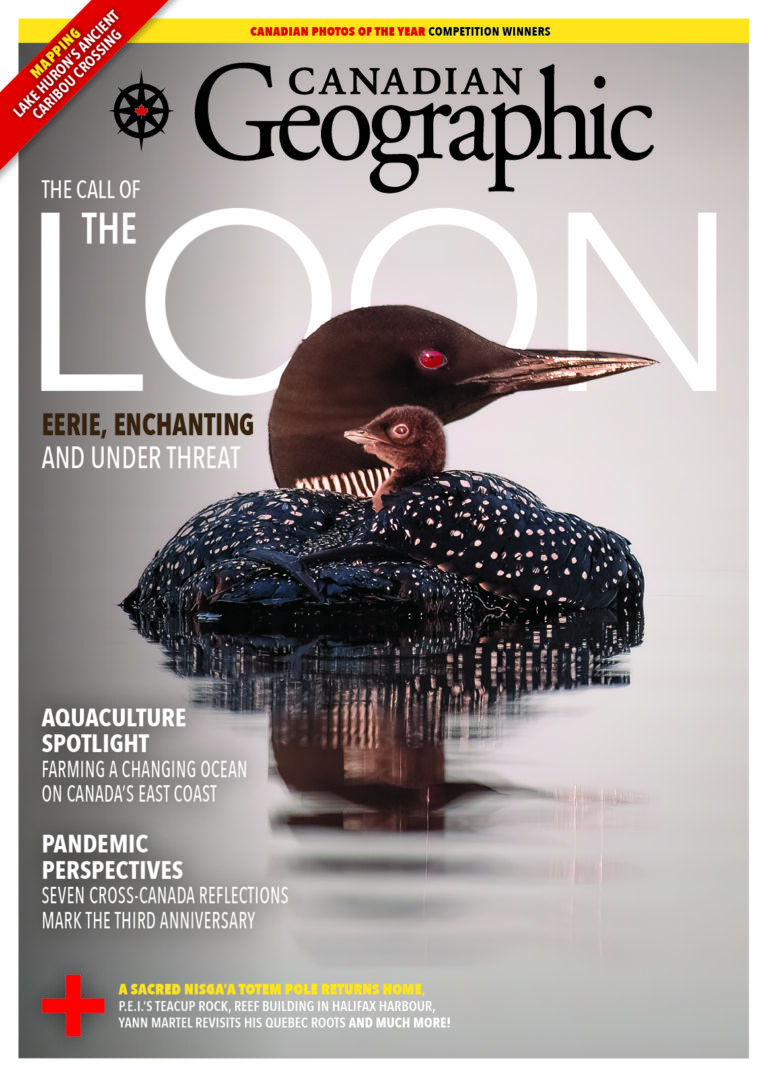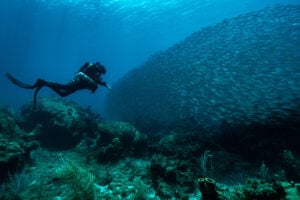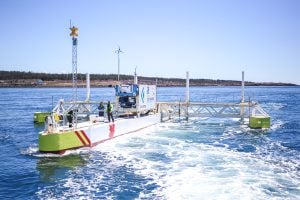
Environment
Kelp: The sustainable superfood coming soon to a plate near you
Kelp’s potential as a commercial crop is finally being recognized — and, as kelp forests vanish worldwide, so is its importance in coastal ecosystems
- 2515 words
- 11 minutes
Science & Tech
A new kind of concrete could help regrow depleted kelp forests off Nova Scotia’s coast

Like trees in a breeze, golden forests of kelp once swayed beneath the waves off Nova Scotia’s coast. These highly productive ecosystems were both home and nursery to fish, shellfish and other ocean creatures. At the same time, they absorbed wave energy, protecting the coastline from erosion. But kelp is in steep decline in many places around the globe, including in Canadian waters. A recent Dalhousie University survey of a 100-kilometre study area on Nova Scotia’s coast documented an astonishing 85 to 99 per cent loss of kelp forests, mostly due to warming waters, which kill off the corals that kelp use as anchor points.
A chunky new concrete called Oceanite could play an important role in the recovery of these underwater forests, serving as an anchor on which kelp and other organisms can re-establish. The material has already proven successful in tropical coral reef restoration. Now, IntelliReefs, a division of American company Reef Life Restoration, is testing Oceanite for northern kelp forests. In November 2021, a 138-square-metre arrangement of Oceanite modules, dubbed ReefShip, was sunk on the seafloor of Halifax Harbour.
Melody Brenna, CEO and co-founder of IntelliReefs, compares Oceanite to a unique underwater concrete the Romans mixed thousands of years ago using volcanic ash, lime and volcanic rock. When poured into sea water, the concrete would crystallize and harden, forming underwater structures that are as strong today as when they were built. Oceanite is made with similar pozzolanic materials and is much more porous than ordinary concrete, creating a friendly landing pad throughout the structure for kelp zygotes, coral larvae and other juvenile organisms. While conventional concrete has a very high pH level, which repels nearly all organisms, Oceanite is much less alkaline, with a pH similar to the surrounding ocean. Its mineral composition can even be adjusted to match local geology.
Guyon Brenna, design director and co-founder of IntelliReefs, explains that the ReefShip concept is designed to allow the company to rapidly manufacture artificial reef modules in any shape and size, leading “entire degraded coastlines to be revitalized and protected using immense reef mimicking formations.”
Canadian researchers are still working on a formal study to document the overall success of the project, but early results are promising. Within a year of the ReefShip’s November 2021 deployment, videos and photos showed kelp and other organisms colonizing it. “There are crabs all over it,” says Melody Brenna. “You can see a thousand little fish swirling around it.”
Combined with work at other institutions to breed climate change-resistant kelp, corals and other species, Oceanite could be instrumental in regrowing depleted kelp and coral reefs and establishing new ones. These living sea walls could reduce the coastal impacts of storms super-charged by climate change — and last as long as ancient Roman ruins.

This story is from the March/April 2023 Issue

Environment
Kelp’s potential as a commercial crop is finally being recognized — and, as kelp forests vanish worldwide, so is its importance in coastal ecosystems

Exploration
How research on little-known “marine animal forests” could shine a light on ocean hope spots — and why they need protecting

Environment
How climate change is destroying some of Canada's most important underwater ecosystems

Science & Tech
In the Bay of Fundy, technicians are putting a groundbreaking new tidal technology through its paces

People & Culture
A celebration of the Canadian Coast Guard’s renowned search-and-rescue capabilities — and more — as the special operating agency turns 60

People & Culture
Inside the 500-kilometre dogsled race across the High Arctic with the qimuksiqtiit who are sharing their knowledge with the next generation